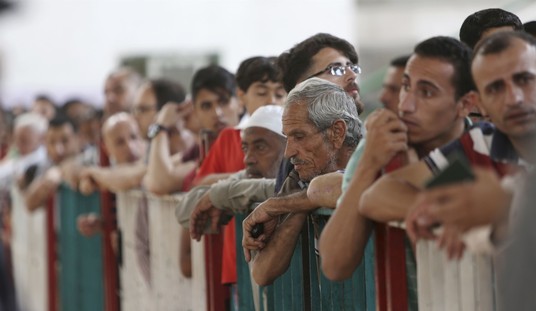In news that must have shocked the vast majority of New York Times subscribers, columnist Nicholas Kristof this week divulged that he has seen evangelical Christians doing selfless, crucial service in the world’s most dangerous places among the most desperately poor, even though liberals know evangelicals are religious bumpkins.
Today, among urban Americans and Europeans, “evangelical Christian” is sometimes a synonym for “rube.” In liberal circles, evangelicals constitute one of the few groups that it’s safe to mock openly.
Yet the liberal caricature of evangelicals is incomplete and unfair. I have little in common, politically or theologically, with evangelicals or, while I’m at it, conservative Roman Catholics. But I’ve been truly awed by those I’ve seen in so many remote places, combating illiteracy and warlords, famine and disease, humbly struggling to do the Lord’s work as they see it, and it is offensive to see good people derided.
Surprisingly, Kristof doesn’t urge readers to develop a more complete and fair caricature of such “rubes,” but actually suggests liberals pause and reflect “the next time you hear someone at a cocktail party mock evangelicals.”
As an evangelical Christian, I don’t get to as many cocktail parties as I used to, and I didn’t realize that folks at such parties mock people like me with enough frequency that a columnist for “the paper of record” feels duty-bound to deal with the subject.
 I do, however, spend a lot of time with other Christians, and it is not an extraordinary thing at church to meet folks who have traveled the world on medical missions, provided food and clothing to those in need, or helped in a variety of other personal ways. It’s also not surprising in my church to see married couples who have adopted or foster-parented multiple children whose delightful faces reflect a rich palette of human hues. I know a Christian couple from a tiny midwestern town who had more the 60 foster children over the years. Last I heard, they were living in Oaxaca, Mexico, serving people in the name of Christ. I’ve known Christians who would quietly slip cash into the hand of a needy person at their moment of greatest need, or who would let a stranger use their vehicle or their spare bedroom for as long as necessary — or who would drop everything to drive hundreds of miles to help someone.
I do, however, spend a lot of time with other Christians, and it is not an extraordinary thing at church to meet folks who have traveled the world on medical missions, provided food and clothing to those in need, or helped in a variety of other personal ways. It’s also not surprising in my church to see married couples who have adopted or foster-parented multiple children whose delightful faces reflect a rich palette of human hues. I know a Christian couple from a tiny midwestern town who had more the 60 foster children over the years. Last I heard, they were living in Oaxaca, Mexico, serving people in the name of Christ. I’ve known Christians who would quietly slip cash into the hand of a needy person at their moment of greatest need, or who would let a stranger use their vehicle or their spare bedroom for as long as necessary — or who would drop everything to drive hundreds of miles to help someone.
When it seemed I didn’t have a friend in the world — but I did have a case of bronchitis that was blooming into pneumonia — a pastor and his wife took me into their home, fed me, did my laundry and nursed me back to health, without being asked and without asking for anything.
As odd as it sounds to me to hear Kristof’s surprise at the love and grace I see around me daily — I don’t want the moment to pass without recognizing Nick for recognizing it.
I must say that a disproportionate share of the aid workers I’ve met in the wildest places over the years, long after anyone sensible had evacuated, have been evangelicals, nuns or priests.
Likewise, religious Americans donate more of their incomes to charity, and volunteer more hours, than the nonreligious, according to polls. In the United States and abroad, the safety net of soup kitchens, food pantries and women’s shelters depends heavily on religious donations and volunteers.
The brothers and sisters in Christ I described above don’t need praise from men, not even from impressive liberal columnists for the New York Times. They hear the applause of heaven, and feel the joy of Jesus as they work in the power of his Spirit.
Nevertheless, I think it’s good for the country, for Times readers and even for Nick, whenever anyone gets a glimpse at the absurdity of his own bigotry.








Join the conversation as a VIP Member